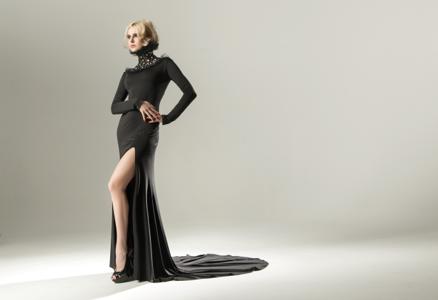托福听力讲座哲学类考点分析:迪尔卡
- 2018年05月17日19:15 来源:小站整理
- 参与(2) 阅读(6244)
托福考试无论是托福阅读还是托福听力都涉及对各类话题或学科的考察,考生如果对所考察学科有所了解,会非常容易理解阅读和听力的内容,更迅速准确解题。哲学是托福听力中多有考察的一个话题类别,也是让很多童鞋感到头疼的一个学科,下面我们来了解以下哲学话题领域一个常考知识点:笛卡尔。
Introduction:
Descartes’s Philosophy
笛卡尔被广泛认为是西方近代哲学的奠基人,他第一个创立了一套完整的哲学体系。哲学上,笛卡尔是一个二元论者以及理性主义者。笛卡尔认为,人类应该可以使用数学的方法–也就是理性–来进行哲学思考。他相信,理性比感官的感受更可靠。
Background information:
René Descartes was a French philosopher,mathematician and writer who spent most of his life in the Dutch Republic. Hehas been dubbed the father of modern philosophy, and much subsequent Western philosophyis a response to his writings, which are studied closely to this day.
Modern foundationalism was initiated byFrench Enlightenment philosopher René Descartes. In his Meditations, Descarteschallenged the contemporary principles of philosophy by arguing that everythinghe knew he learnt from or through his senses. He used various arguments tochallenge the reliability of the senses, citing previous errors and thepossibilities that he was dreaming or being deceived by an Evil Demon.Descartes attempted to establish the secure foundations for knowledge to avoidskepticism. He contrasted the information provided by senses, which is unclearand uncertain, with the truths of geometry, which are clear and distinct.Geometrical truths are also certain and indubitable; Descartes thus attemptedto find truths which were clear and distinct because they would be indubitablytrue and a suitable foundation for knowledge. His method was to question all ofhis beliefs until he reached something clear and distinct that was indubitablytrue. The result was his cogito ergo sum – 'I think therefore I am', or thebelief that he was thinking – as his indubitable belief suitable as afoundation for knowledge. This resolved Descartes' problem of the Evil Demon –the possibility that he was being deceived by an Evil Demon, rendering all ofhis beliefs about the external world false. Even if his beliefs about theexternal world were false, his beliefs about what he was experiencing werestill indubitably true, even if those perceptions do not relate to anything inthe world.
Knowledge points:
1. 笛卡尔被誉为现代哲学之父。
2. 笛卡尔挑战当代哲学原理。他用各种理由来挑战感官的可靠性,引用之前的错误,以及他可能在做梦或者被恶梦误导的各种可能性。
3. 笛卡尔对比不确定的感官信息和清楚明白的几何学。从这里他悟出一个道理:他必须承认的一件事就是他自己在怀疑。而当人在怀疑时,他必定在思考,由此他推出了著名的哲学命题—“我思故我在”。
Vocabulary prediction:
Illusion 幻觉
Deceive 欺骗
Mirage 海市蜃楼
Shimmer 闪烁
Test Point – 官方真题Official28L1
Professor
Now, for a very different view, let’s turnto another philosopher—René Descartes.
Descartes thought that you have to go muchdeeper to find the foundations. He believed that our senses are not to betrusted. So he wanted to find a more solid foundation for knowledge. He beganwith what has come to be called methodological doubt. And when we saymethodological doubt, well ... Descartes believed that everything should bequestioned, that is, approach it with doubt and that if you could find onething that cannot be false, that one thing would serve as a foundation for allother knowledge claims.
So unlike John Locke, Descartes doubts thatknowledge comes to him from his senses. He points out that at some time oranother, everyone has been deceived by their senses. We have all hadexperiences where our senses have been wrong—illusions, perhaps, mirages. Whendriving in a car on a hot summer day, you may see what looks like shimmeringwater on the road, which, as science tells us, is really just a mirage, anillusion caused by the heating of the air. Our senses are wrong, they’vedeceived us. And Descartes thinks that since our senses can deceive us, weought not to take for granted that what they tell us is really true. That’s thefirst step in his methodological doubt.
From there he wonders, well, ok, I candoubt my senses, but can I doubt that I am sitting in this room? Can it seemthat we are not really here? That we are somewhere else? He conceives that mostof us would know that we are sitting in the room. But then he says, well,couldn’t I just be dreaming? He’s had dreams that were so real that he thoughthe was awake when in fact he was actually asleep. And this is another good point.It’s really hard to be sure that you are not actually dreaming. Yet anotherproof for Descartes that we can’t always trust what our senses are apparentlytelling us. We could be dreaming. And there’s really no good way to prove thatwe are not.
Knowledge points
1.笛卡尔怀疑他感知到的信息。他认为在某个时刻每个人都会被他的感官欺骗。这是他哲学思想里的第一步。
2.有时候我们可能是在做梦或者出现幻觉,就像我们会看到海市蜃楼一样,这都说明人们的感官不一定是真实的。
以上就是托福听力讲座中关于笛卡尔哲学思想的相关考点,大家可以在托福听力备考过程中注意结合练习多加反思总结,获得托福听力能力和分数的同步提高。





































